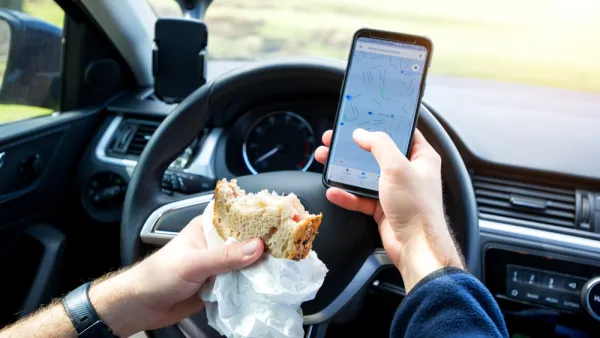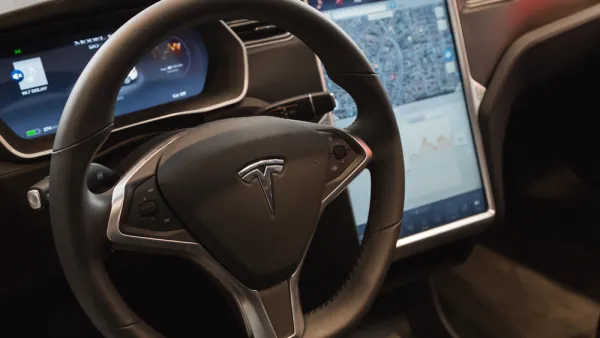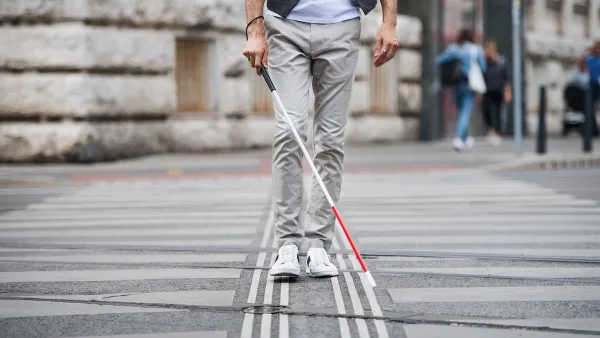In the wake of multiple fatal crashes involving Tesla's self-driving mode, ethicists suggest the need for a robust set of regulations governing the testing of AVs before more of them hit the road.

Tesla, which "has been offering customers access to a 'Full Self Driving' beta software, allowing Tesla owners to effectively become guinea pigs for the company's tech" for years, "is now under investigation by the National Highway Traffic Safety Administration (NHTSA) for several crashes where the Autopilot system was engaged." James McCandless reports on new research "that explores the intersection of human behavior and automated driving features in production and future vehicles."
According to Dr. Bryan Reimer, research scientist at the MIT Center for Transportation, "the push towards autonomous driving is a balancing act between what autonomous vehicles can do versus what a driver is capable of doing in conjunction with that technology. The goal is to take some of the more routine driving tasks out of the hands of the driver." Because humans, by nature, tend to become over-reliant on automation, "Reimer says that autonomous systems should be seen as a collaborative part of driving in helping drivers make moment-to-moment decisions." But drivers using Tesla's Autopilot and Full Self Driving modes "have become less attentive on average," leading to the multiple crashes seen in the last year. To Reimer, these repeated incidents raise ethical questions about the efficacy of 'self-driving' modes. "Once we understand a situation," he says, "it becomes foreseeable misuse." Reimer suggests a more cautious approach to autonomous testing and a need for "third-party validated scientific data."
"[T]he uneven nature of autonomous vehicle testing is partly down to the absence of a relevant regulatory environment." According to Reimer and Dr. Nicholas Evans, professor of philosophy at University of Massachusetts-Lowell, autonomous cars need "a regulatory body similar to the Food and Drug Administration (FDA) that can oversee the development of these technologies and insure that they're being safely tested and used."
The benefits of increased oversight, says Evans, "outweigh any reductions of speed in testing cycles," and "there should be more dialogue about the ethical implications of who is affected by more self-driving vehicles on the road and the unintended consequences."
FULL STORY: Ethical Standards for Self-Driving Car Testing Are Still in Their Beta Stage

National Parks Layoffs Will Cause Communities to Lose Billions
Thousands of essential park workers were laid off this week, just before the busy spring break season.

Retro-silient?: America’s First “Eco-burb,” The Woodlands Turns 50
A master-planned community north of Houston offers lessons on green infrastructure and resilient design, but falls short of its founder’s lofty affordability and walkability goals.

Delivering for America Plan Will Downgrade Mail Service in at Least 49.5 Percent of Zip Codes
Republican and Democrat lawmakers criticize the plan for its disproportionate negative impact on rural communities.

Test News Post 1
This is a summary

Test News Headline 46
Test for the image on the front page.

Balancing Bombs and Butterflies: How the National Guard Protects a Rare Species
The National Guard at Fort Indiantown Gap uses GIS technology and land management strategies to balance military training with conservation efforts, ensuring the survival of the rare eastern regal fritillary butterfly.
Urban Design for Planners 1: Software Tools
This six-course series explores essential urban design concepts using open source software and equips planners with the tools they need to participate fully in the urban design process.
Planning for Universal Design
Learn the tools for implementing Universal Design in planning regulations.
EMC Planning Group, Inc.
Planetizen
Planetizen
Mpact (formerly Rail~Volution)
Great Falls Development Authority, Inc.
HUDs Office of Policy Development and Research
NYU Wagner Graduate School of Public Service





























